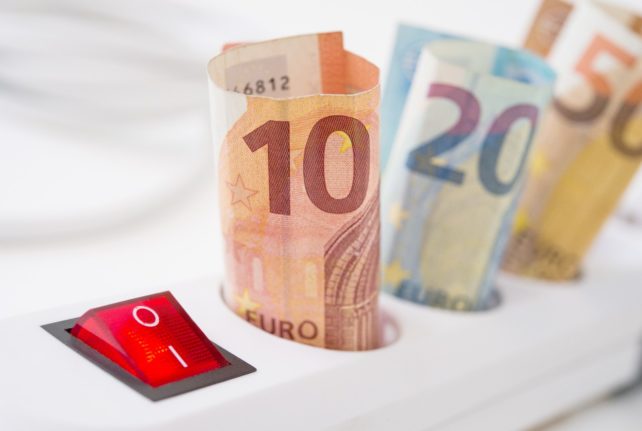The lights on the tree will only shine for four hours each evening from four o’clock to eight, instead of burning constantly as they did last year, the spokesman told AFP.
The fir, plucked from the forests of nearby Brandenburg, is decorated with 4,920 low-energy LED lights, which will consume 287 watt-hours.
A children’s choir on Thursday sang the classic carol “O Tannenbaum” (O Christmas Tree) at the foot of the tree in Scholz’s presence.
Last year, the tree was put up while conservative Chancellor Angela Merkel was still in office.
The erstwhile German leader stepped down on December 8th to make way for Social Democrat Scholz, and his coalition partners, the Greens and the liberal FDP.
A few hundred metres from the chancellery, the Christmas tree in front of the Brandenburg Gate will also only be lit for six hours a day instead, as opposed to 24.
READ ALSO: Cold showers to turning off lights: How German cities are saving energy
The Russian invasion of Ukraine on February 24 upturned global energy markets, sending prices soaring and confronting Europe with the possibility of shortages over the winter.
To avoid acute problems around the turn of the year Germany has set about tapping new sources of natural gas and encouraging energy saving measures.
Floodlights that illuminate some 200 public monuments and buildings in Berlin — including its red-brick city hall, State Opera House and Charlottenburg Palace — have also been turned off overnight since July.



 Please whitelist us to continue reading.
Please whitelist us to continue reading.
Member comments